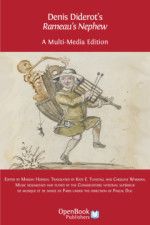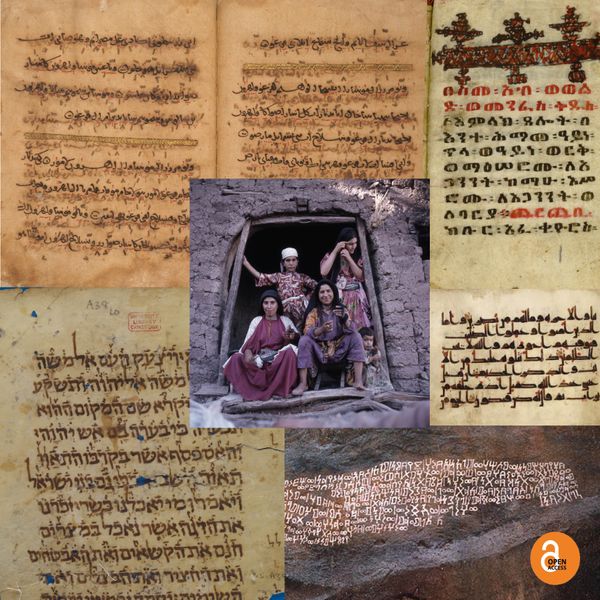The Shifting Politics of Representations of the Himalaya: From Colonial Authority to Open Access
On an uncharacteristically sunny afternoon in late September, 50 students, staff and faculty gathered at the Peter Wall Institute for Advanced Studies in Vancouver to celebrate the launch of The Politics of Language Contact in the Himalaya.
Since the event, I have been asking myself what it means to launch a book in the digital age, in particular when the entire volume is already—and intentionally—freely available online for all to read and download. The unveiling of this open access volume has afforded me an opportunity to reflect on our goals and the choices we made as editors.
First, most contributors to the volume are early career scholars for whom this is one of their first publications. In addition, several contributors are scholars of Himalayan origin—from Nepal and Tibet in particular. My co-editor Selma K. Sonntag and I were eager for this collection to be as much by and of Himalayan scholars as it was about scholarship on the Himalayan region.
Second, we are celebrating this book during the United Nations International Year of Indigenous Languages 2019. For those of us working in language revitalization, this General Assembly resolution offers timely recognition of community efforts to reclaim their ancestral languages in spaces of ongoing colonization. Indigenous colleagues and community partners, however, have noted that for them, every moment of every year is and will remain Indigenous Language Day.
Third, I have become increasingly invested in open access scholarship, and am convinced that it’s more necessary than ever. I have had the pleasure of working with the Open Book Publishers at Cambridge for over a decade now to change the shape, format and reach of academic publishing in the humanities and social sciences. The first book that we published in the series that I edit was an updated edition of Ruth Finnegan’s classic text, Oral Literature in Africa.
Originally published in 1970 by Oxford, Finnegan hand-carried a few copies back to donate to African university libraries. The book was soon out of print. In 2010, through conversations with Finnegan, we decided to republish this important book, together with original recordings of stories and songs from her formative fieldwork in the 1960s, along with an updated introduction. The 2012 edition of Oral Literature in Africa has, as of this writing, been viewed and downloaded 196,453 times. Perhaps most importantly, the book has been accessed more in Africa than in any other continent. The Politics of Language Contact in the Himalaya was released online only a few weeks ago and has already been viewed and downloaded over 440 times. A third of these viewers have IP addresses that locate them in the Himalayan region.
I remain suspicious about the seductiveness of overly celebratory narratives of open access publishing that do not address the real costs of academic publishing or gloss over the labour involved. The Politics of Language Contact in the Himalaya is still steeped in the privileged resources of Western academia, and the orientalist cover by the great Victorian artist, illustrator, musician, author and poet, Edward Lear—these days known mostly for his literary nonsense poetry and especially for his memorable limericks—at first appears to reinscribe that privilege. Our choice of Lear’s painting for the cover art to this volume was in fact intended rather to disrupt his authority and create space for communities in and from the Himalayan region to engage with colonial representations of their homeland.
Entitled simply ‘Kinchinjunga’, Lear’s painting dates to 1877. It depicts Kanchenjunga, the third highest mountain in the world, situated on the eastern border of Nepal and the western border of Sikkim, a zone of geological, cultural and linguistic contact. The original painting is held in the collection of the Yale Center for British Art in New Haven, Connecticut. In 2011, Yale University introduced a new policy to make ‘high quality digital images of Yale’s vast cultural heritage collections in the public domain openly and freely available’. Lear’s ‘Kinchinjunga’ is just one of the thousands of digital images that can now be accessed, downloaded, shared and used for free.
Lear often painted small groups of people into his landscapes—too distant to identify—who appear to be in conversation. In his Indian Diaries, Lear wrote: ‘Kinchinjunga is not – so it seems to me – a sympathetic mountain; it is so far off, so very god-like and stupendous.’ My primary objective for this edited collection is to reduce the very distance about which Lear wrote—both in terms of understanding and in terms of access to knowledge—helping to bring the region closer, while still retaining something of the reverence for cultural and linguistic diversity with which we started.
Mark Turin is an anthropologist and linguist at the University of British Columbia in Vancouver, and a member of the Editorial Board and Advisory Panel of the Cambridge-based Open Book Publishers. For 2019-2020, he is a Wall Scholar at the Peter Wall Institute for Advanced Studies. He tweets @markturin.
You can now read, download or get your own copy of ‘The Politics of Language Contact in the Himalaya’ by Selma K. Sonntag and Mark Turin here. You can also read the first post of this series ‘Why the politics of language needs examples from beyond the Global North’ by Rémi Léger here.
Photo: https://commons.wikimedia.org/wiki/Himalayas#/media/File:Glacial_lakes,_Bhutan.jpg



